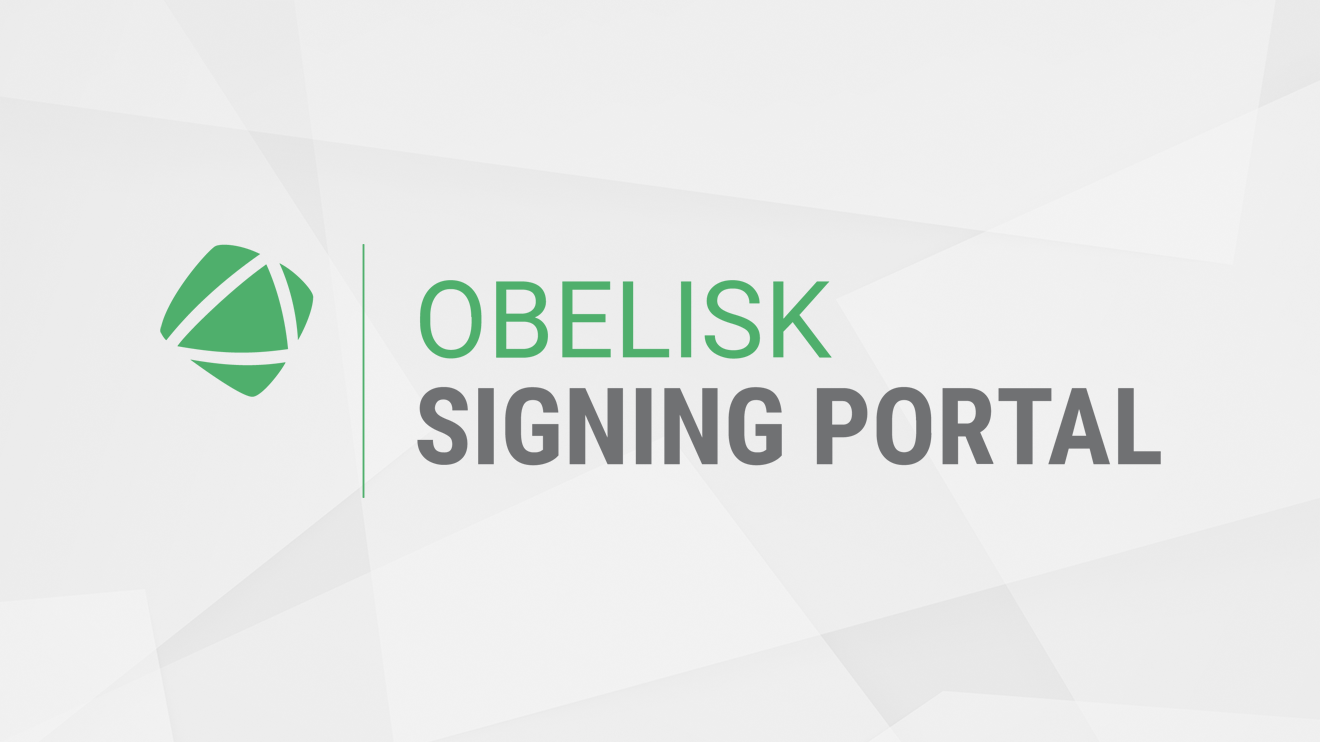SEFIRA is expanding its portfolio with the new OBELISK Signing Portal product to address the need for organizations to centralize electronic document signing and digital trust services in one place.
Electronic signatures bring trust to the world of electronic documents and enable organizations to digitize business processes, speed them up and increase their reliability. The practice of digitisation is colourful and raises many issues. Which electronic signature and for which process is the right one – basic, biometric, witnessed, advanced or qualified? Is it better to use an external service or to sign locally e.g. using a smart card or token? What if it is practical, cost-effective and legally compliant to use different types of e-signatures? Which certificate should I use for signing? What if different applications implement e-signatures differently or have difficulty implementing them? Will switching vendors or e-signature technology impact business systems? Do we have control over this in our organization? Couldn’t it be done in a clear and above all user-friendly way? These questions, which are most frequently asked by most organisations working with electronic signatures, are at the heart of the OBELISK Signing Portal product.
OBELISK Signing Portal provides organisations with a secure and user-friendly platform for sharing, approving and signing electronic documents. It is a single signing point across the entire organization, for current, potential, or leaving employees, for management, business partners and customers, citizens and government employees. In addition, signing is also possible from mobile platforms.
The new product allows the user and the organization to elegantly manage and organize the signing process in a digital environment, choosing the right means and the required level of trust. Combined with partner solutions from e.g. HR, DMS/ECM, PLM in manufacturing organizations or healthcare information systems, OBELISK Signing Portal provides a comprehensive solution for diverse market segments, whether it is invoices, HR documents or supplier or customer contracts.
“Putting electronic signatures of different trust levels under central control is tactical. Once e-signatures start to be implemented in different ways in different systems, that’s the root of digital trust issues.” Says Marián Jurík, CEO of SEFIRA.
Just because you have digital trust under control doesn’t mean that you only use one type of electronic signature or signature method everywhere. OBELISK Signing Portal integrates different signature methods and is not limited to a certain type of signature. You can sign with your own hand, with a smart card or with an external service, all from one user environment. The product also integrates a qualified remote signature service from external providers. Thus, from one application, management can sign contracts in a qualified manner and employees can sign with a different type of signature of appropriate confidence, depending on the purpose and type of document. OBELISK Signing Portal has powerful integration tools and acts as a central service for business applications that can delegate e-signatures to a dedicated service with a simple web service request. The organization thus achieves the desired state where a uniform way of signing is offered to the user even in different applications.
The OBELISK Signing Portal also offers users the option of instant signing, deferred signing or bulk signing – anyone whose signing takes them away from their main work during the day will appreciate this. What can be postponed is better signed at the end of the working day or the next morning. Documents will wait in the OBELISK Signing Portal queue for signing. Of course, integration to identity sources and authentication mechanisms is a must. Thinking of using BankID but not sure how to technically go about it? We are currently working on this integration. Last but not least, OBELISK Signing Portal emphasizes user experience and thus contributes significantly to the user’s willingness to accept and actively use electronic signatures. Active users accelerate the digitisation of processes not only in situations where they have to sign as part of their work duties, but especially in situations where it is a voluntary choice for them. In situations where the benefit and ease of use outweighs the obligation.
“For successful implementation, it is important to shield the user from complex technologies, and not everyone understands the concepts on which the electronic signature is based. We know from experience how uncomfortable it can be to navigate the different levels of e-signature or to choose the right certificate. OBELISK Signing Portal brings clarity, intuitiveness and a pleasant user experience to the world of electronic signatures,” says Marián Jurík.
The story of digital trust is just beginning with e-signatures. OBELISK Signing Portal is integrated with other modules of the OBELISK platform – Seal, Validator, Trusted Archive, Storage. This forms a comprehensive solution for digital trust and long-term physical storage of documents in HW repositories. The OBELISK digitization platform thus implements the principles of “Digital Trust as a Service” and “Document as a Service” in practice.
“The OBELISK Signing Portal solution is designed for enterprises of various sizes and we believe that it will be beneficial for any organisation that has decided to go down the path of digitisation,” adds Marián Jurík.

